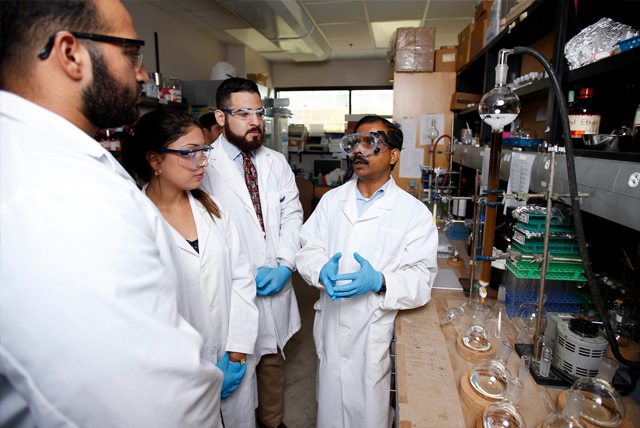Document Type
Article
Publication Date
2-27-2023
Abstract
Pancreatic enzymes assist metabolic digestion, and hormones like insulin and glucagon play a critical role in maintaining our blood sugar levels. A malignant pancreas is incapable of doing its regular functions, which results in a health catastrophe. To date, there is no effective biomarker to detect early-stage pancreatic cancer, which makes pancreatic cancer the cancer with the highest mortality rate of all cancer types. Primarily, mutations of the KRAS, CDKN2A, TP53, and SMAD4 genes are responsible for pancreatic cancer, of which mutations of the KRAS gene are present in more than 80% of pancreatic cancer cases. Accordingly, there is a desperate need to develop effective inhibitors of the proteins that are responsible for the proliferation, propagation, regulation, invasion, angiogenesis, and metastasis of pancreatic cancer. This article discusses the effectiveness and mode of action at the molecular level of a wide range of small molecule inhibitors that include pharmaceutically privileged molecules, compounds under clinical trials, and commercial drugs. Both natural and synthetic small molecule inhibitors have been counted. Anti-pancreatic cancer activity and related benefits of using single and combined therapy have been discussed separately. This article sheds light on the scenario, constraints, and future aspects of various small molecule inhibitors for treating pancreatic cancer—the most dreadful cancer so far.
Recommended Citation
Shetu, S. A., James, N., Rivera, G., & Bandyopadhyay, D. (2023). Molecular research in pancreatic cancer: Small molecule inhibitors, their mechanistic pathways and beyond. Current Issues in Molecular Biology, 45(3), 1914-1949. https://doi.org/10.3390/cimb45030124
Creative Commons License

This work is licensed under a Creative Commons Attribution 4.0 International License.
Publication Title
Current Issues in Molecular Biology
DOI
10.3390/cimb45030124



Comments
© 2023 by the authors. Licensee MDPI, Basel, Switzerland.